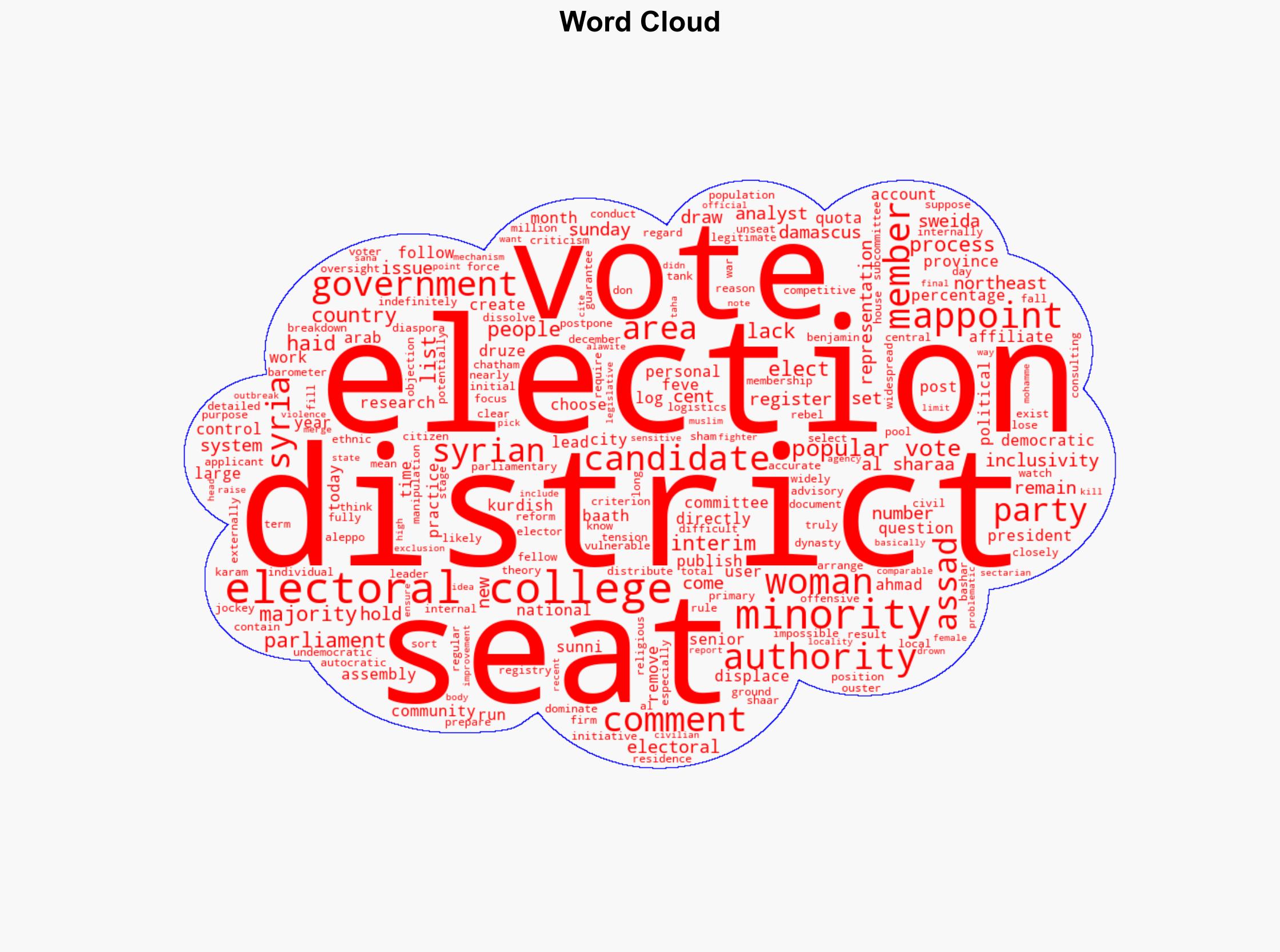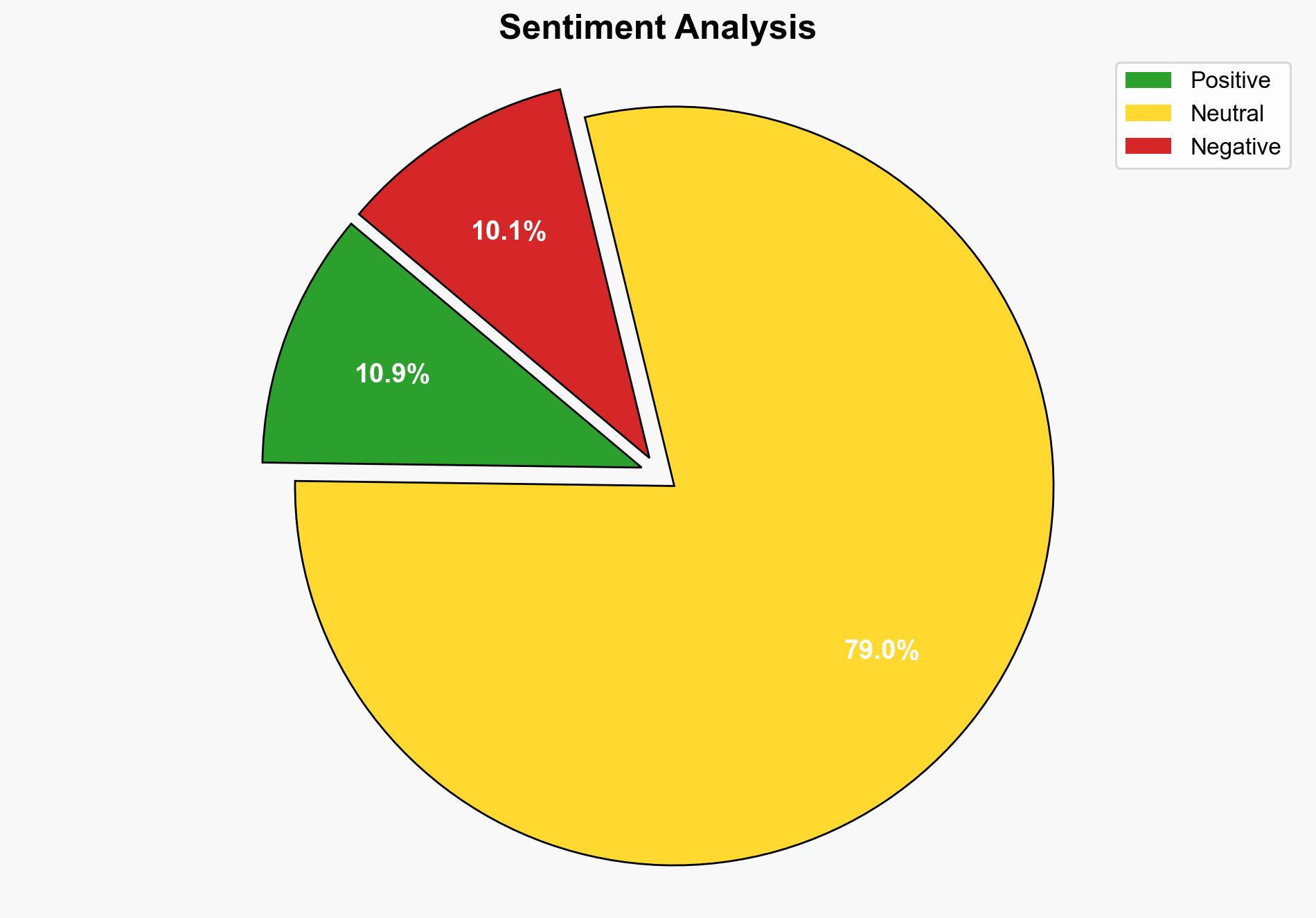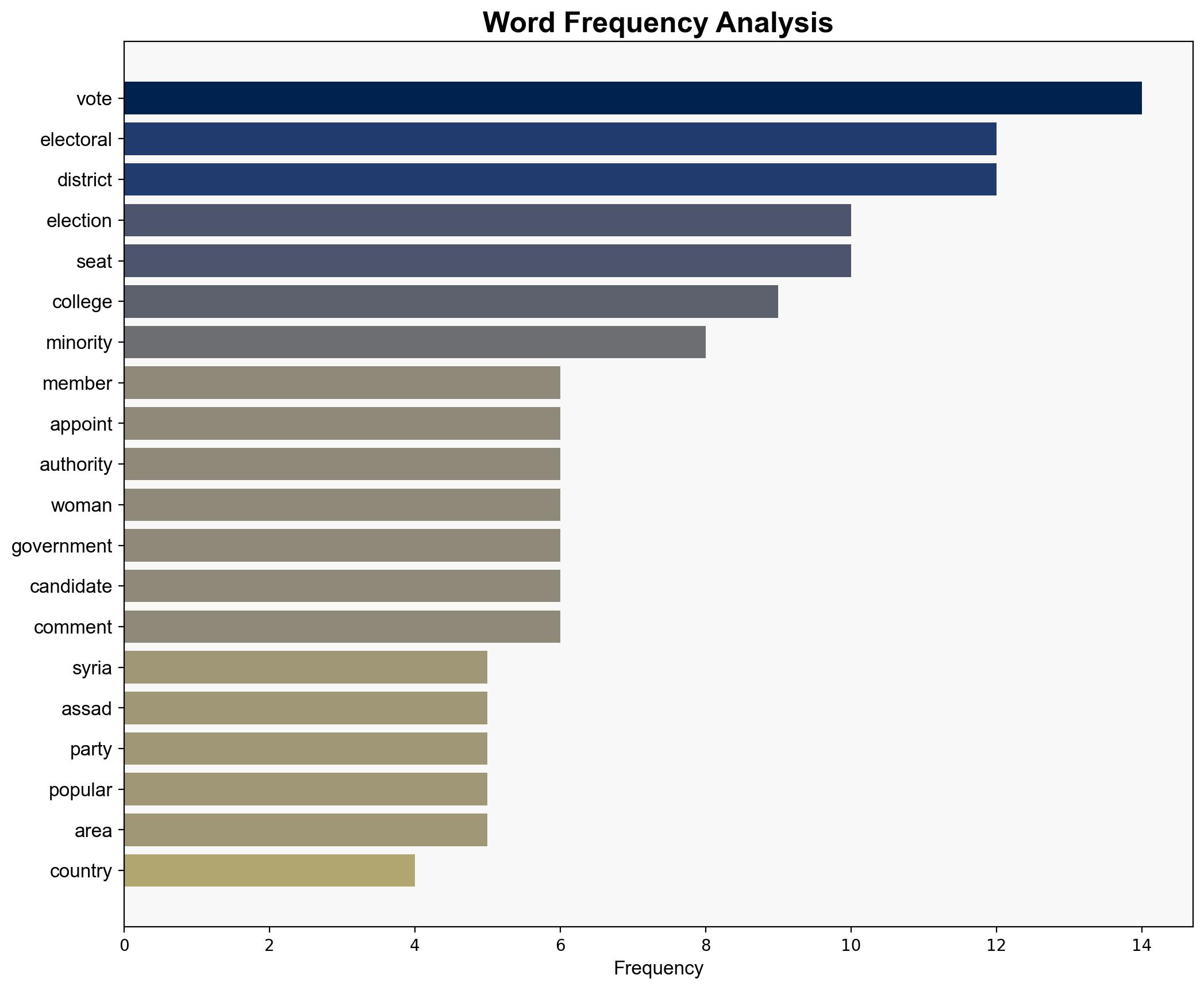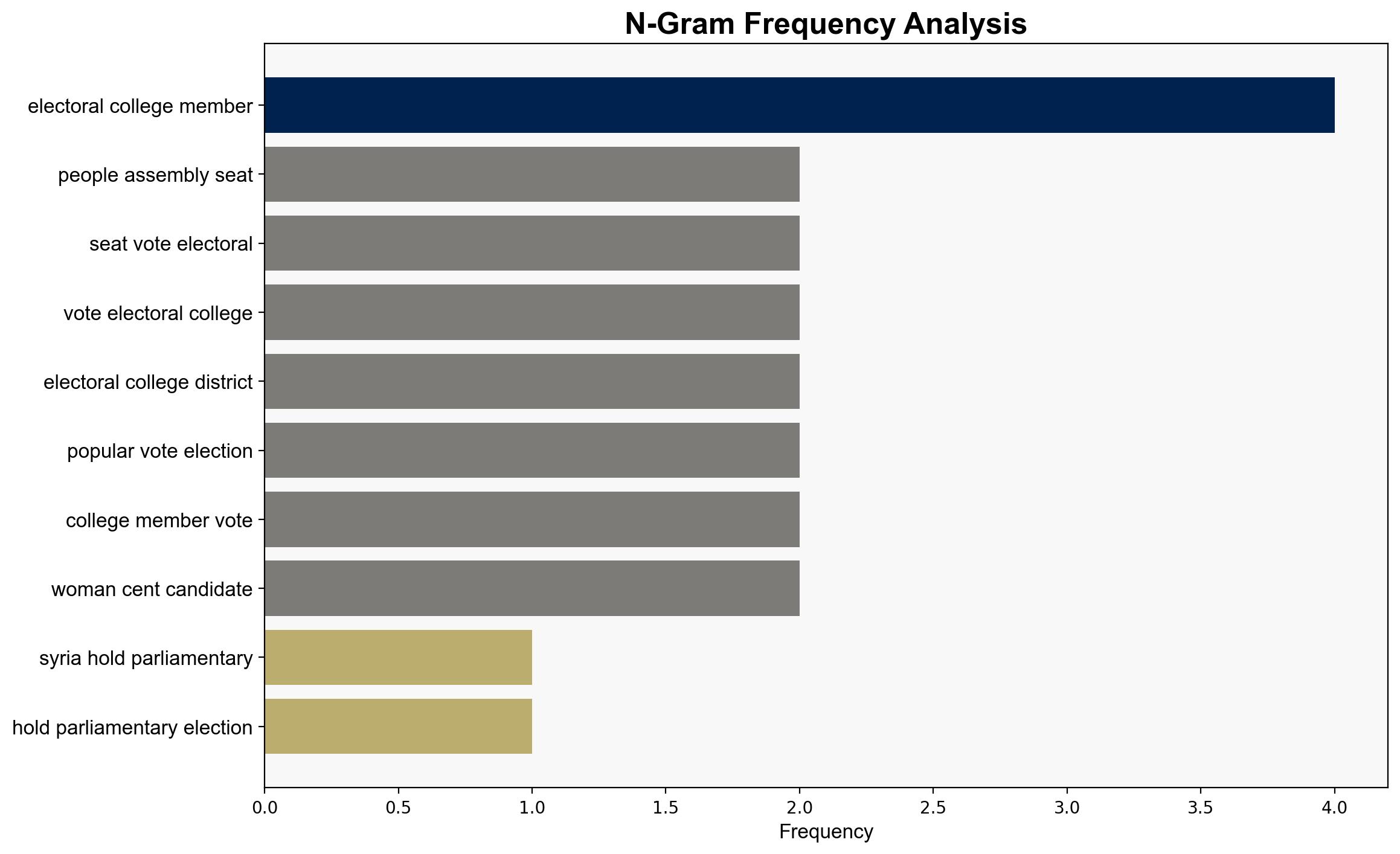What to expect as Syria goes to polls for first time since Assad’s ouster – BusinessLine
Published on: 2025-10-05
Intelligence Report: What to expect as Syria goes to polls for first time since Assad’s ouster – BusinessLine
1. BLUF (Bottom Line Up Front)
The upcoming Syrian parliamentary elections are unlikely to be a fully democratic process. The most supported hypothesis is that the elections will serve as a mechanism for the interim government to consolidate power rather than genuinely reflect the will of the people. Confidence level: Moderate. Recommended action: Monitor the election process closely and engage with international partners to advocate for transparency and inclusivity.
2. Competing Hypotheses
1. **Hypothesis A**: The elections are a genuine attempt by the interim government to establish a democratic process post-Assad, aiming to include diverse representation and set the stage for future stability.
2. **Hypothesis B**: The elections are primarily a facade, designed to legitimize the interim government’s authority and control, with limited genuine democratic engagement or representation.
Using ACH 2.0, Hypothesis B is better supported due to the lack of a popular vote, the dominance of the electoral college system, and the historical context of manipulated elections under Assad’s regime.
3. Key Assumptions and Red Flags
– **Assumptions**: The interim government has the capacity and intent to conduct fair elections. The electoral college system can adequately represent the population’s interests.
– **Red Flags**: Absence of a popular vote, potential manipulation in the electoral college, and the exclusion of displaced Syrians from the voting process. Lack of transparency in the selection process for electoral college members.
4. Implications and Strategic Risks
The elections could exacerbate existing tensions between the central government and local authorities, particularly in regions like Sweida and Kurdish-controlled areas. Failure to conduct inclusive elections may lead to further disenfranchisement and instability, potentially fueling renewed conflict or protests. The legitimacy of the interim government on the international stage could be undermined, affecting foreign aid and diplomatic relations.
5. Recommendations and Outlook
- Encourage international observers to monitor the election process to ensure transparency.
- Engage with Syrian civil society groups to assess the inclusivity and fairness of the elections.
- Scenario-based projections:
- Best Case: Elections lead to a more inclusive government, paving the way for national reconciliation.
- Worst Case: Elections are widely seen as illegitimate, leading to increased unrest and potential conflict.
- Most Likely: Elections proceed with limited transparency, resulting in a government that lacks broad legitimacy.
6. Key Individuals and Entities
– Ahmad al Sharaa (Interim President)
– Benjamin Feve (Senior Research Analyst)
– Karam Shaar (Advisory Consultant)
– Haid Haid (Senior Research Fellow)
– Mohammed Taha al Ahmad (Head of National Elections Committee)
7. Thematic Tags
national security threats, electoral integrity, regional stability, governance, international relations




